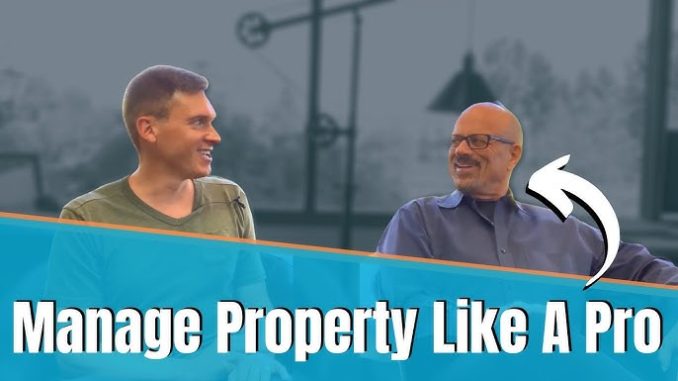
Managing property successfully requires a combination of organization, financial planning, tenant relations, and maintenance strategies. Whether you own a single rental unit or multiple investment properties, understanding how to handle day-to-day operations efficiently can maximize profits, reduce stress, and increase property value over time.
If you want to manage property like a pro, you need to adopt smart strategies, use the right tools, and stay ahead of potential challenges. This guide will walk you through everything you need to know about effective property management.
1. Understand Your Role as a Property Manager
Property management goes beyond collecting rent. A professional approach involves:
- Screening and managing tenants
- Handling repairs and maintenance
- Ensuring compliance with legal regulations
- Managing finances, including rent collection and taxes
- Maximizing property value through smart investments
Understanding your responsibilities helps avoid legal troubles, tenant disputes, and unnecessary expenses.
2. Use Technology to Streamline Operations
Successful property managers leverage technology to automate and simplify tasks. Consider using:
- Property management software like Buildium, AppFolio, or RentRedi to track rent, expenses, and maintenance requests.
- Online rent collection platforms such as PayPal, Zelle, or Stripe for easy payments.
- Smart home technology like keyless entry and security cameras to enhance property safety.
Using technology reduces manual work and increases efficiency, allowing you to focus on growing your real estate portfolio.
3. Screen Tenants Carefully
One of the biggest challenges in property management is dealing with problem tenants. A thorough screening process helps you avoid late payments, property damage, and eviction hassles.
Steps to Screen Tenants Like a Pro:
- Check credit scores to ensure financial responsibility.
- Verify income (generally, tenants should earn 3x the rent amount).
- Review rental history by contacting previous landlords.
- Perform background checks to ensure no criminal activity.
A careful selection process ensures you attract reliable, responsible tenants who pay on time and take care of your property.
4. Set Competitive and Profitable Rent Prices
Charging the right rent amount is crucial for attracting tenants and maintaining profitability.
How to Determine the Right Rent Price:
- Research comparable properties in the area.
- Consider the location, amenities, and market demand.
- Adjust based on the season (rents may be higher in peak moving seasons).
- Factor in expenses like property taxes, maintenance, and management fees.
Setting the rent too high can lead to vacancies, while pricing too low reduces your profit margin.
5. Establish a Solid Lease Agreement
A well-crafted lease agreement protects both you and your tenant by clearly outlining rules, responsibilities, and expectations.
Key Clauses to Include in Your Lease:
- Rent amount, due date, and payment methods.
- Security deposit terms and refund conditions.
- Tenant responsibilities (e.g., maintenance, utilities, noise policies).
- Pet policies and restrictions.
- Rules for subleasing and guests.
A strong lease agreement prevents misunderstandings and legal disputes down the line.
6. Stay on Top of Maintenance and Repairs
A well-maintained property attracts tenants, reduces complaints, and prevents costly repairs. Proactive maintenance saves time and money in the long run.
Pro Property Maintenance Tips:
- Conduct regular property inspections (every 6 months to 1 year).
- Respond to maintenance requests quickly to keep tenants happy.
- Keep a list of trusted contractors for repairs and emergency issues.
- Schedule seasonal maintenance (e.g., HVAC servicing, gutter cleaning).
A well-maintained property not only retains its value but also keeps tenants satisfied and loyal.
7. Manage Tenant Relationships Professionally
Happy tenants are more likely to pay on time, renew their leases, and take care of your property.
How to Maintain Positive Tenant Relationships:
- Communicate clearly and respectfully.
- Be responsive to questions, concerns, and requests.
- Offer incentives for lease renewals (e.g., small rent discounts, upgraded appliances).
- Set clear boundaries to maintain professionalism.
Good tenant relationships lead to long-term rental stability and fewer vacancies.
8. Handle Late Payments and Evictions Strategically
Even with careful tenant screening, late payments or non-payment can still occur.
Steps to Handle Late Rent Payments:
- Send a polite reminder as soon as rent is late.
- Charge late fees as outlined in the lease agreement.
- Offer a payment plan if the tenant is facing financial difficulties.
- If necessary, begin the eviction process according to local laws.
Evictions should always be a last resort, but knowing your rights and acting quickly can prevent financial losses.
9. Keep Up with Legal and Tax Responsibilities
Property management involves legal and financial obligations that vary by location.
Key Legal Considerations:
- Know tenant rights and fair housing laws in your state or country.
- Follow proper procedures for security deposits.
- Keep records of all rental income and expenses for tax purposes.
- Ensure the property meets health and safety standards.
Staying compliant prevents legal trouble and ensures smooth operations.
10. Plan for Long-Term Property Value Growth
Successful property managers don’t just focus on rent collection—they also aim to increase property value over time.
Ways to Boost Property Value:
- Upgrade kitchens and bathrooms for modern appeal.
- Improve curb appeal with landscaping and fresh paint.
- Add energy-efficient features to attract eco-conscious renters.
- Stay informed about market trends to make strategic upgrades.
Investing in your property leads to higher rental income and long-term appreciation.
11. Know When to Hire a Property Manager
Managing property yourself can be rewarding, but if you own multiple properties or lack the time, hiring a professional property manager may be a smart move.
Signs You Need a Property Manager:
- You own multiple properties and can’t manage them all efficiently.
- You live far from your rental property.
- You don’t want to deal with tenant screening, maintenance, or legal issues.
- You prefer a hands-off investment approach.
A good property manager handles everything for you, ensuring smooth operations and maximizing profits.